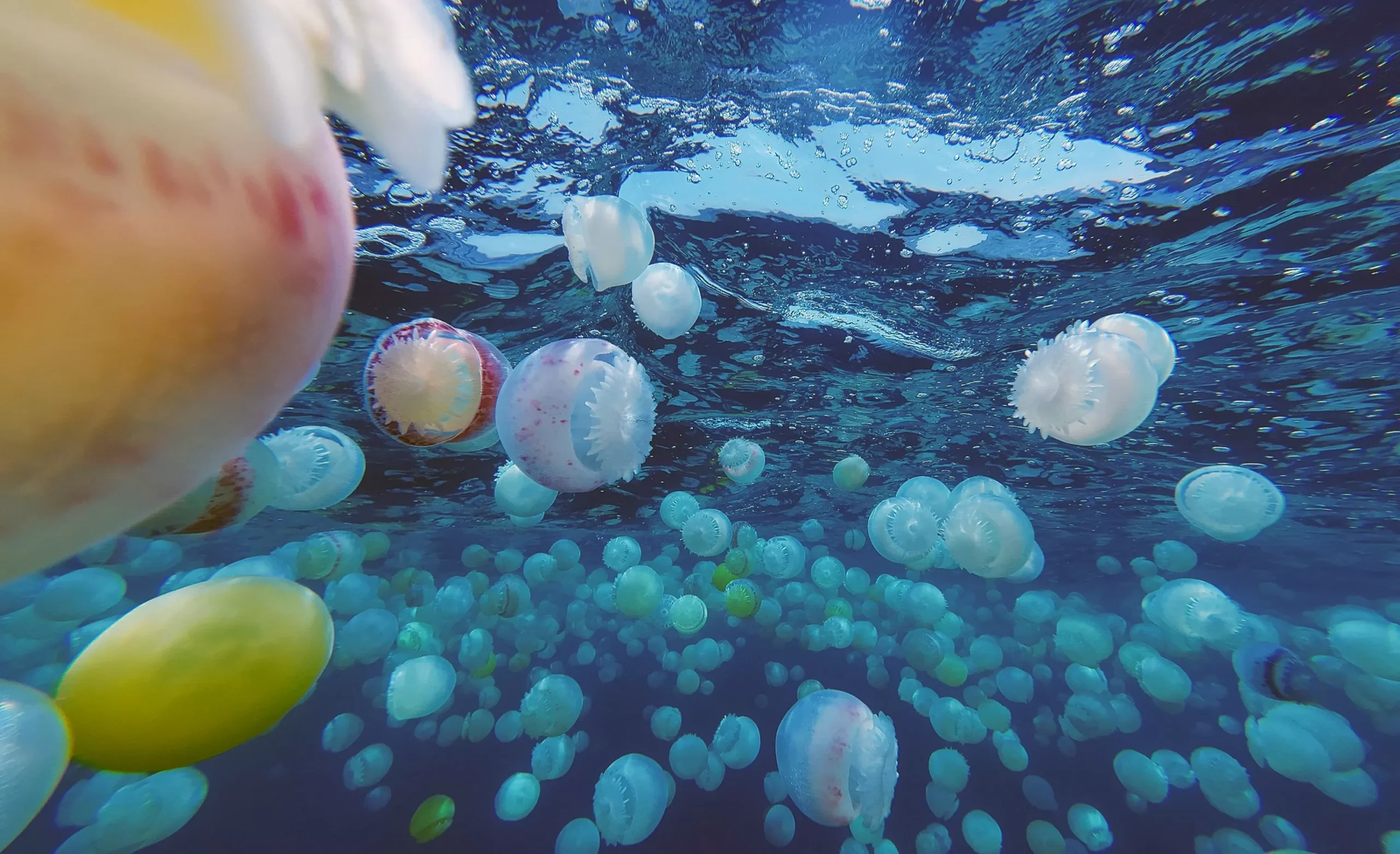The vibrant and picturesque waters of Aragua in Venezuela have long been a source of livelihood and beauty for the local community. However, in recent years, a strange and inconvenient sight has been dotting the turquoise waters – colorful jellyfish. These creatures, once a rare sight in the area, have now become a common occurrence, causing havoc for the fishing industry and creating concerns about the impact of climate change on the region.
The jellyfish, known for their translucent bodies and colorful tentacles, have been multiplying in the waters of Aragua due to the rising sea temperatures and changes in ocean currents. This has led to an increase in their population, making it difficult for fishermen to cast their nets and catch fish. The jellyfish have also been damaging fishing equipment, resulting in financial losses for the fishermen.
The situation has become so severe that some fishermen have had to abandon their traditional fishing grounds and venture further out to sea in search of fish. This not only increases their costs but also puts them at risk of encountering dangerous weather conditions. The once thriving fishing community of Aragua is now struggling to make ends meet, with many families facing financial hardships.
The presence of jellyfish in the waters has also become a major inconvenience for tourists who come to Aragua to enjoy its pristine beaches and clear waters. The sight of these creatures can be alarming for some, and many tourists have reported being stung by the jellyfish while swimming. This has affected the tourism industry in the area, as visitors are now choosing to go to other destinations with less jellyfish infestation.
The local government and environmental organizations are taking steps to address the issue and mitigate its impact on the community. Efforts are being made to educate fishermen on how to safely handle and remove jellyfish from their nets without harming them. This not only helps in reducing the damage to fishing equipment but also ensures the survival of these creatures.
In addition, measures are being taken to monitor the jellyfish population and study their behavior in the changing ocean conditions. This will provide valuable insights into the impact of climate change on marine life and help in developing strategies to protect the ecosystem.
Despite the challenges posed by the jellyfish, there is still hope for the future of Aragua’s waters. The local community has come together to find solutions and adapt to the changing conditions. Fishermen are exploring alternative fishing methods, such as using smaller nets and fishing in different areas, to minimize their impact on the jellyfish population. The government is also investing in sustainable fishing practices and promoting eco-tourism to diversify the local economy.
Moreover, the presence of jellyfish in the waters has also brought about a unique opportunity for research and discovery. Scientists are studying the species and their behavior, which could lead to new discoveries and advancements in marine biology.
In conclusion, while the colorful jellyfish may be causing inconvenience and challenges for the fishing industry in Aragua, it is also a reminder of the urgent need to address climate change and protect our oceans. The community’s resilience and determination to find solutions give hope for a brighter future, where the waters of Aragua will once again thrive with diverse marine life. Let us all do our part in preserving this beautiful ecosystem for generations to come.








